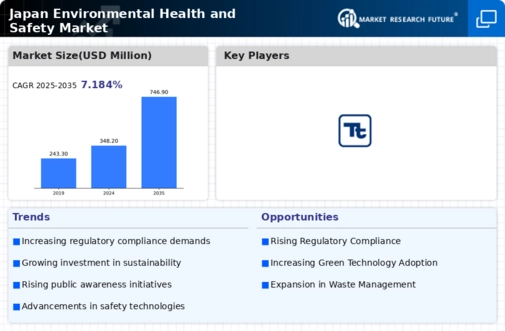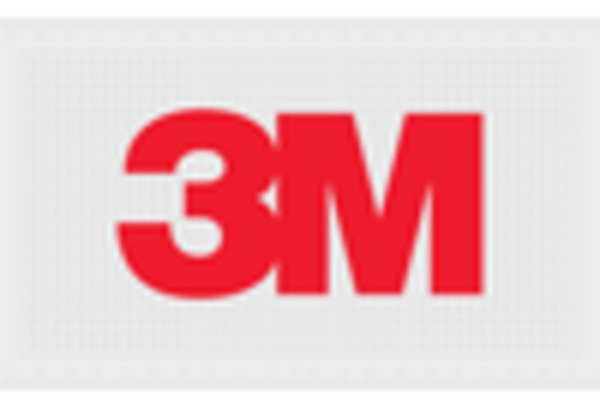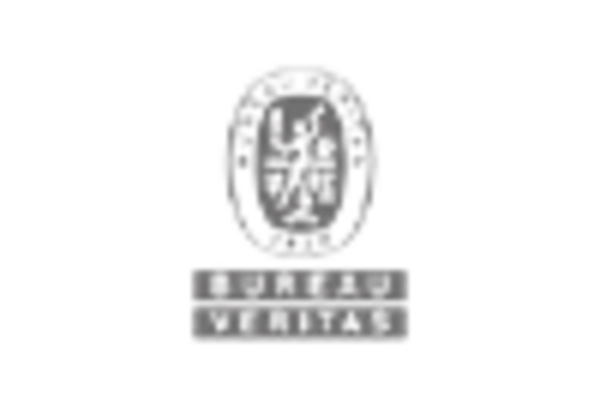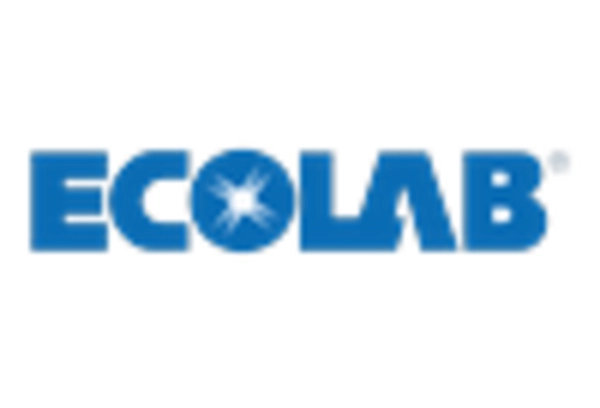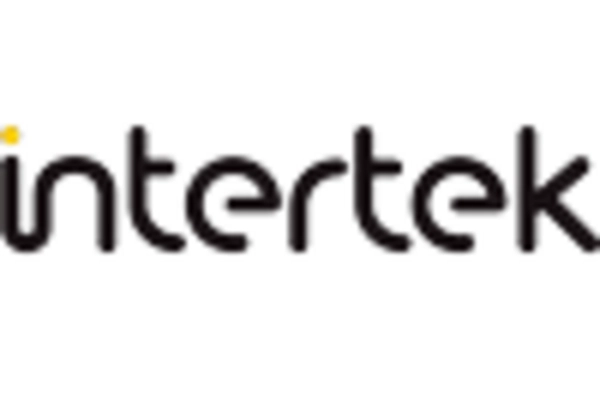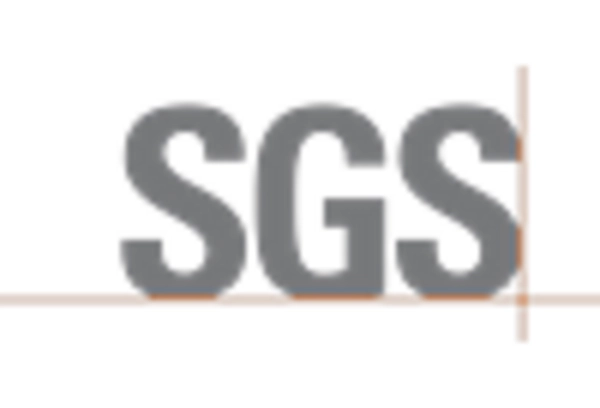Increased Regulatory Scrutiny
The environment health-safety market in Japan is experiencing heightened regulatory scrutiny, driven by both domestic and international standards. The Japanese government has implemented stricter regulations to ensure compliance with environmental safety protocols. This has led to an increased demand for compliance solutions, as companies seek to avoid penalties and enhance their operational integrity. In 2025, the market is projected to grow by approximately 8% as organizations invest in technologies and services that facilitate adherence to these regulations. The emphasis on regulatory compliance is reshaping the landscape of the environment health-safety market, compelling businesses to prioritize safety measures and environmental stewardship.
Economic Growth and Industrial Expansion
Japan's economic growth and industrial expansion are driving factors in the environment health-safety market. As industries such as manufacturing and construction continue to thrive, there is a corresponding increase in the demand for effective health and safety solutions. The government’s focus on infrastructure development is likely to further stimulate this demand, with projections indicating a growth rate of 6% in the environment health-safety market by 2025. Companies are investing in comprehensive safety programs to mitigate risks associated with industrial activities, thereby enhancing their operational resilience. This economic momentum is expected to create a favorable environment for the environment health-safety market, fostering innovation and investment.
Corporate Social Responsibility Initiatives
In Japan, the environment health-safety market is significantly influenced by the rise of corporate social responsibility (CSR) initiatives. Companies are increasingly recognizing the importance of sustainable practices and their impact on brand reputation. As a result, there is a growing investment in environmental health and safety programs, which are seen as essential components of CSR strategies. In 2025, it is estimated that organizations will allocate over $1 billion towards enhancing their environmental health-safety measures. This trend not only reflects a commitment to ethical practices but also aligns with consumer expectations for responsible corporate behavior, thereby driving growth in the environment health-safety market.
Public Awareness and Environmental Advocacy
Public awareness regarding environmental issues is on the rise in Japan, significantly impacting the environment health-safety market. Advocacy groups and community organizations are increasingly vocal about the need for sustainable practices and environmental protection. This heightened awareness is prompting businesses to adopt more rigorous health and safety measures to align with public expectations. In 2025, it is anticipated that companies will invest approximately 15% more in environmental health-safety initiatives to address these concerns. The influence of public advocacy is reshaping corporate strategies, compelling organizations to prioritize transparency and accountability in their environmental health-safety practices.
Technological Integration for Safety Management
The integration of advanced technologies into safety management systems is a key driver in the environment health-safety market in Japan. Companies are increasingly adopting digital solutions, such as IoT devices and AI-driven analytics, to monitor and manage safety protocols more effectively. This technological shift is expected to enhance operational efficiency and reduce incidents, thereby fostering a safer working environment. By 2025, the market for safety management technologies is projected to reach $500 million, indicating a robust growth trajectory. The adoption of these technologies not only streamlines compliance processes but also positions organizations to respond proactively to potential hazards, thereby reinforcing their commitment to safety.


